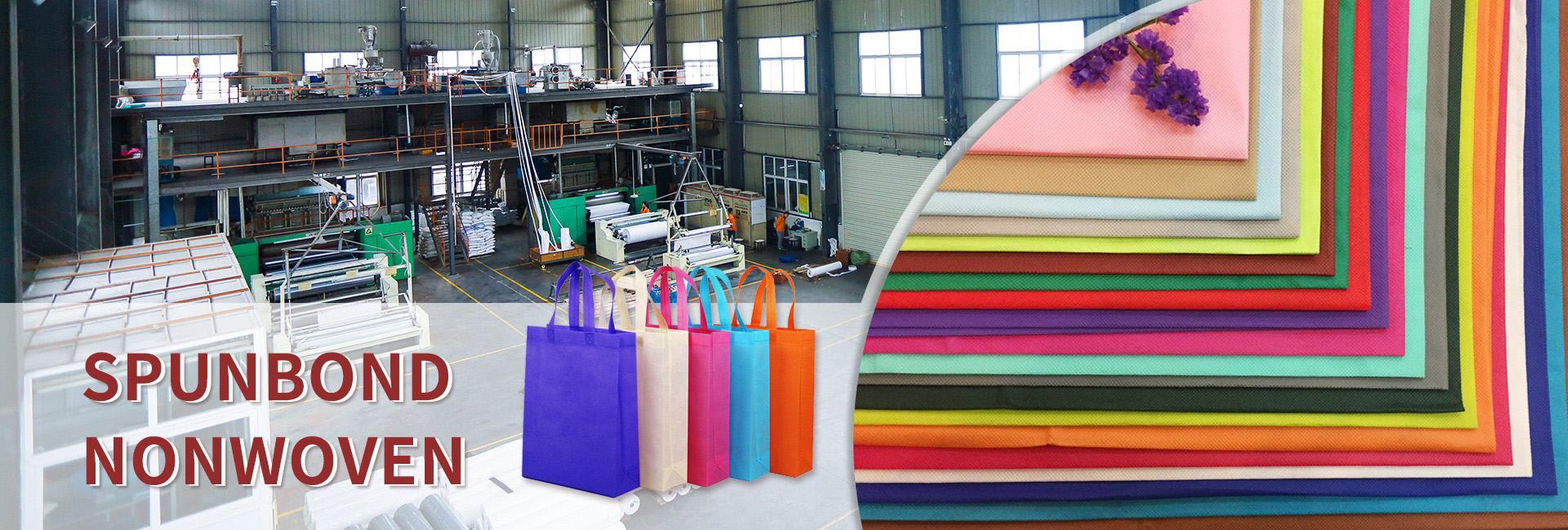The environmental friendliness of the production process of non-woven fabrics is related to the specific production process. The following will compare and analyze the traditional non-woven fabric production process with a more environmentally friendly non-woven fabric production process, in order to draw conclusions.
The production process of traditional non-woven fabrics mainly includes two steps: spinning mesh and heat sealing.
Spinning mesh
Spinning net refers to the process of melting polymers and shaping them through spinning, wet spinning, and spinning methods. In this process, solvents, additives and other chemical substances are required, and a large amount of waste liquid and exhaust gas will be generated. These chemicals and waste have a certain pollution effect on the environment. In addition, the petrochemical fiber polyester used in traditional spinning methods is a non degradable plastic that also has a certain negative impact on the environment.
Hot bonding
Heat sealing refers to the process of combining the fibers of non-woven fabrics formed by spinning nets through hot pressing, melting, high-frequency and other methods. This process requires the use of a series of chemicals and high-temperature equipment. Meanwhile, during the heat sealing process, some spinning solvents may not completely evaporate and be discharged into the atmosphere, causing certain pollution to the environment.
Environmentally friendly non-woven fabric production process
In contrast, a more environmentally friendly non-woven fabric production process is the production process of bio based non-woven fabrics. Its main raw materials are renewable cellulose materials, such as plant fibers and algae fibers. These cellulose materials have good biodegradability and are environmentally friendly. In addition, the production process of bio based non-woven fabrics does not require the use of a large amount of chemicals and high energy consuming equipment, resulting in minimal environmental impact.
Conclusion
Overall, the production process of traditional non-woven fabrics has a significant impact on the environment, including the use of chemicals and the generation of waste liquids and gases. The production process of bio based non-woven fabrics is relatively environmentally friendly, using renewable cellulose materials to reduce the use and emissions of chemicals. Therefore, from an environmentally friendly perspective, the production process of bio based non-woven fabrics is superior to that of traditional non-woven fabrics.
[Note] The information and viewpoints provided above are for reference only. More specific data and empirical research support are needed to comprehensively evaluate whether the production process of non-woven fabrics is environmentally friendly.
Dongguan Liansheng Nonwoven Fabric Co., Ltd., a manufacturer of non-woven fabrics and non-woven fabrics, is worthy of your trust!
Post time: Jul-05-2024

